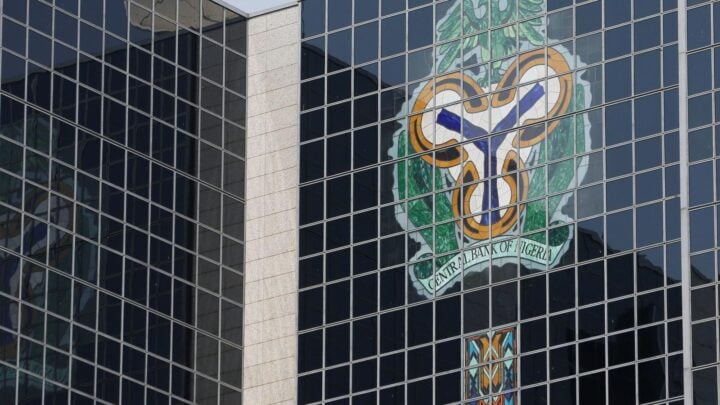As the world adjusted to new economic realities in 2022, the oil industry was not left out, with major sectoral shifts occurring in the year.
The Nigerian oil sector, like other sectors, sometimes showed bolstering resilience, wading through high storms. Other times, surrounding issues affected the sector to its marrow.
In this article, TheCable highlights some oil and gas events that became the cynosure of 2022.
RECORD-LOW OIL PRODUCTION
Advertisement
In the wake of Russia’s invasion of Ukraine, global oil prices surged to more than $130 a barrel amid a shortfall in global supplies from Russia.
Due to the increased international prices, oil-rich countries like Saudi Arabia raked in high oil revenues.
Though it was expected that Nigeria, a major oil producer, would get more revenue; the country could not produce enough crude oil to maximise the high price of the commodity, even as it struggled to meet the quota set by the Organisation of Petroleum Exporting Countries (OPEC).
Advertisement
With an output of 1.39 million barrels of oil in January, the country’s production declined for four consecutive months before it increased to 1.15 million bpd in June.
Setting the pace for another round of decline, oil production averaged 1.08 million in July. In August, oil output hit an all-time low — falling below the 1 million mark — only rising above the level in October.
For October and November the country’s oil output averaged 1,014,485 bpd, and 1.18 million bpd, respectively.
Overall, the country failed to record above 1.4 million in the year 2022. There are also indications that the underproduction may extend till 2023.
Advertisement
Timipre Sylva, minister of petroleum resources, had said Nigeria should meet the production quota set by the Organisation of Petroleum Exporting Countries (OPEC) in May 2023.
“Nigeria’s production of crude had improved to about 1.3 million barrels per day from under 1 million barrels previously, and the country hoped to meet its OPEC quota by May of next year (2023),” he had said.
OIL THEFT
In 2021, the country produced between 1.4 million bpd and 1.7 million bpd. But diverse issues, including oil theft and pipeline vandalism, culminated in the oil output dip in 2022.
Advertisement
Several institutions and authority figures lamented that the menace affected the sector tremendously, estimating the monetary value and volume of loss at huge numbers.
In June 2022, the Nigerian Upstream Petroleum Regulatory Commission (NUPRC) said Nigeria lost $1 billion in the first quarter of the year.
Advertisement
In November 2022, the senate committee investigating oil theft and its consequent damage to the country’s economy said Nigeria lost N1.3 trillion ($2 billion) to oil theft between January and August 2022.
Apart from the losses recorded, significant volumes of crude oil were shut-in consistently due to theft.
Advertisement
When an oil well is shut-in, it is closed off so that it stops producing.
Mele Kyari, group chief executive officer (GCEO), Nigerian National Petroleum Company (NNPC) Limited, had said Nigeria loses 700,000 bpd to crude oil theft and production shut-ins.
Advertisement
“We had the capacity to do 2.1 million. You can technically say that you have lost about 700,000 barrels of oil per day of production. But it doesn’t mean 700,000 bpd are stolen,” Kyari had said.
“What in reality happens is that when those stealing take place, we probably lose up to 200,000 bpd of direct losses to thieves. And beyond this, once you have this infraction getting to a level we cannot manage, in some instances, some of the pipeline losses get up to 80 percent to 90 percent loss at one point.”
Also speaking on the issue, NUPRC had said about 1.2 million barrels of oil are shut-in consistently due to the menace.
But the federal government said it was working with relevant stakeholders to curb the issue.
It appeared that such ‘collaboration’ paid off in the long run.
The NNPC awarded a pipeline surveillance contract — reportedly worth N48 billion annually (N4bn per month) — to an ex-militant warlord, Government Ekpemupolo, otherwise known as Tompolo.
In October, a private pipeline surveillance team, Tantita security services, led by Tompolo, arrested a vessel used for crude oil theft off the Niger Delta creeks. The vessel was subsequently destroyed.
More so, in the same month, NNPC said it uncovered an illegal 4-kilometre (km) pipeline from Forcados terminal to the sea, and a loading port that had operated for nine years.
Despite these feats, Babagana Monguno, the national security adviser, said Nigeria may lose $23 billion in 2023, if oil theft is not fully curbed.
NNPC TRANSITIONING TO COMMERCIAL COMPANY
In July, the NNPC transitioned into a limited liability company, becoming a profit-oriented and commercialised entity.
At the unveiling ceremony, Buhari said the NNPC Limited would operate “free from institutional regulations, such as the treasury single account, public procurement, and fiscal responsibility act”.
Buhari added that the company would now deliver value to over 200 million shareholders (Nigerians).
Regulated by the Companies and Allied Matters Act (CAMA), NNPC is expected to make full financial disclosures.
The national oil company had declared a profit after tax (PAT) of N674 billion for the year ended 2021.
It is expected to go public — holding an IPO — by June 2023, Mele Kyari, group chief executive officer (GCEO), had said.
PETROL SUBSIDY
With the country’s oil wealth and export status, high prices should mean higher revenue but petrol subsidy continued to erode gains.
Generally, the rise in global oil price resulted in high subsidy regime for Nigeria, thereby depleting the country’s oil earnings.
This is because rising crude prices would likely mean higher refined petroleum landing costs which would translate to ballooning subsidy payments for the country.
In 2022, the country projected a petrol subsidy spending of N4 trillion.
As of September, TheCable had reported that petrol subsidy payments gulped N2.04 trillion.
NNPC, which was responsible for subsidy payments before becoming a limited liability company, said it is now a service provider to the government rather than responsible for imports and subsidies.
Aside from spending related to subsidies, foreign exchange reserves were also depleted during the year, compounding the situation.
The Central Bank of Nigeria (CBN) lamented that the country’s external reserves no longer came from crude oil sales.
Godwin Emefiele, CBN governor, had said foreign reserves receipts declined from the usual $3 billion to zero in 2022.
OFF-SPEC PETROL SAGA
While the off-spec petrol event may be described as another hot topic in 2022, the period was mostly chaotic.
On February 8, 2022, reports surfaced over the presence of substandard petrol in the country, spreading panic across the nation.
Afterwards, the Nigerian Midstream and Downstream Petroleum Regulatory Authority (NMDPRA) confirmed that petrol with methanol quantities above Nigeria’s specification was discovered in the supply chain.
Kyari had said oil suppliers including MRS, Oando, Emadeb Consortium, and Duke Oil, a subsidiary of NNPC, imported the methanol-blended petrol.
However, the suppliers refuted the allegations.
Following the incident, oil marketers recalled the product in three stages — so as not to make its way to the end-users.
The government also constituted a technical committee of stakeholders in the downstream petroleum sector to blend the off-spec petrol to comply with the acceptable standard.
But the withdrawal of the product from the market created a supply gap and triggered scarcity across the country, of which oil regulators and the NNPC made efforts to resolve.
On February 10, the house of representatives asked the NNPC Limited to suspend the companies involved and also mandated the petroleum committees to investigate the matter.
But in April, the house exonerated oil marketers accused of importing methanol-blended petrol into the country, following the consideration and approval of the report of the committee on petroleum resources downstream.
The green chamber said the oil companies “did not commit any offence, and therefore, not recommended for suspension”.
Editor’s note: This story has been updated to correct the month when Nigeria’s oil output rose above the 1 million mark.
Add a comment






